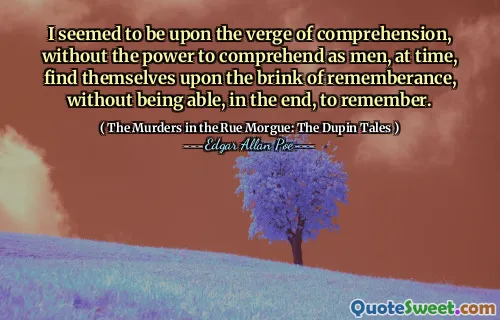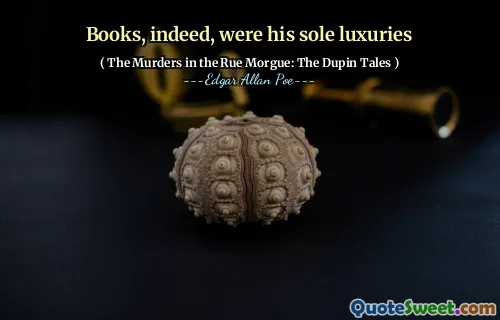"The Murders in the Rue Morgue" is a pioneering detective story by Edgar Allan Poe, featuring the intellectual character C. Auguste Dupin. Set in 19th-century Paris, the narrative begins with the brutal murder of two women, Madame L'Espanaye and her daughter, in a locked room, baffling the police and the public alike. Dupin, intrigued by the case, takes it upon himself to solve the mystery through keen observation and logical reasoning, contrasting with the more conventional investigative methods employed by law enforcement.
As Dupin investigates, he employs his analytical skills to scrutinize the crime scene and gather evidence that others overlook. His ability to deduce the killer's identity and the sequence of events surrounding the murders showcases Poe's emphasis on rational thought and deductive reasoning. Dupin's methods not only lead him to the truth but also establish him as an early archetype of the fictional detective, setting the stage for future detective fiction.
This story emphasizes themes of logic versus chaos, as well as the significance of perception in understanding truth. Through Dupin's character, Poe explores the power of the human mind in unraveling complex mysteries. "The Murders in the Rue Morgue" remains a timeless classic that sparked the genre of detective fiction, influencing countless authors and shaping the conventions of mystery storytelling.
More »
Today Birthdays
1919 -
J. D. Salinger
1974 -
Ally Carter
1879 -
E. M. Forster
1968 -
Mark Lawrence
1839 -
Ouida
1958 -
Hamza Yusuf
1924 -
Charlie Munger
1897 -
Catherine Drinker Bowen
1940 -
Leonard Susskind
1767 -
Maria Edgeworth
1915 -
John Henrik Clarke
1864 -
Alfred Stieglitz
1863 -
Pierre de Coubertin
1716 -
William Wycherley
1874 -
Frank Knox
1956 -
Christine Lagarde
1972 -
Asghar Farhadi
1934 -
Lakhdar Brahimi
1953 -
Gary Johnson
1973 -
Saffron Burrows
1968 -
Cat Cora
1966 -
Ivica Dacic
1975 -
Ayman Odeh
1745 -
Anthony Wayne
1940 -
Frank Langella
1947 -
Jon Corzine
1895 -
J. Edgar Hoover
1922 -
Fritz Hollings
1826 -
Robert Rainy
1963 -
Laura Ingraham


